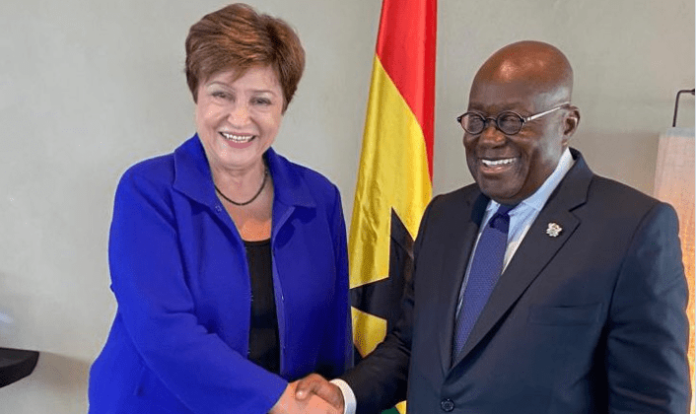Government’s suspension of the Import Restrictions Bill may never return as the International Monetary Fund has made it clear that Ghana cannot ban importation for balance of payment purposes.
This policy continues as long as the Ghana’s deal with the IMF stands. The directive is part of the agreements contained in the US$3 billion bailout for the country.
The 76th page of the programme document indicate that there can be “no imposition or intensification of import restrictions for balance of payments reasons.”
Ghana government, aside from the above, cannot do four other things as long as its bailout from the IMF stands.
The decisions which align with performance criteria common to all Fund arrangements include:
No imposition or intensification of restrictions on making payments and transfers for current international transactions.
No introduction or modification of multiple currency practices.
No conclusion of bilateral payments agreements inconsistent with Article VIII of the IMF Articles of Arrangement.
No imposition or intensification of import restrictions for balance of payments reasons.
The Bretton Wood Institution says it will monitor the agreement to ensure Ghana does not breach any as far as it is under the deal.
The Government of Ghana on Thursday made a surprising suspension of the decision to put the L.I. before parliament, which sought to place the importation of 22-listed products under restrictions. It had tried on three occasions, without success, to lay the bill before the house.
The Minority in Parliament urged President Akufo-Addo to immediately withdraw the regulation seeking to restrict the importation of rice, cement, fish, sugar, guts, bladders, and animal stomachs, known as ‘yemuadie’.
The Trade Minister, K.T Hammond, who was pushing this regulation hoped it will help the cedi appreciate as well as help grow local industries.
Per the proposed regulation, any person seeking to import the selected products would have been required to obtain permission from a commission which was to be constituted by the Trade and Industry Minister.
Ghana’s import bill according to Finance Minister Ken Ofori-Atta, exceeds $10 billion annually and is accounted for by a diverse range of items including palm oil, toilet roll, and even toothpick. While Ghana needs over $500 million to import rice, the trade minister says the importation of ‘yemuadie’ cost the state some $164 million in imports.
READ ALSO: PNC hails government’s move to restrict importation of strategic products











